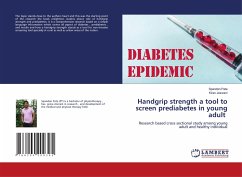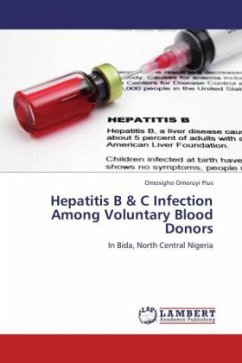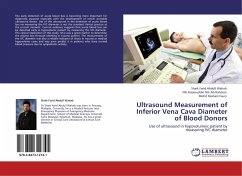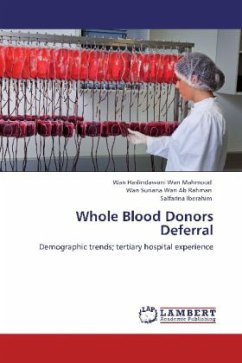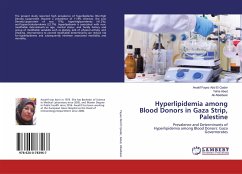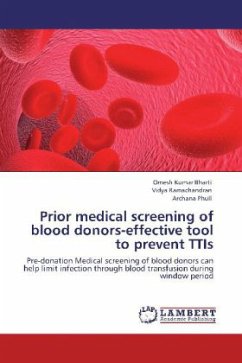
Prior medical screening of blood donors-effective tool to prevent TTIs
Pre-donation Medical screening of blood donors can help limit infection through blood transfusion during window period
Versandkostenfrei!
Versandfertig in 6-10 Tagen
32,99 €
inkl. MwSt.

PAYBACK Punkte
16 °P sammeln!
Hepatitis-B infection screening is an important component of blood safety programme and no blood is issued for transfusion without testing for five transfusion transmittable diseases e.g. hepatitis-B, Hepatitis-C, HIV, Malaria and Syphilis. India, with a carrier rate of 4%, contributes nearly 10% of the HBV carriers in the world. In India with 25 million live births each year, nearly 1 million HBV infections are added to the HBV pool yearly, contributing to its rapid expansion. A study of voluntary blood donors for Hepatitis B in the state of Uttar Pradesh, revealed that 2.3 percent of the don...
Hepatitis-B infection screening is an important component of blood safety programme and no blood is issued for transfusion without testing for five transfusion transmittable diseases e.g. hepatitis-B, Hepatitis-C, HIV, Malaria and Syphilis. India, with a carrier rate of 4%, contributes nearly 10% of the HBV carriers in the world. In India with 25 million live births each year, nearly 1 million HBV infections are added to the HBV pool yearly, contributing to its rapid expansion. A study of voluntary blood donors for Hepatitis B in the state of Uttar Pradesh, revealed that 2.3 percent of the donor are hepatitis carriers and 94.7% of them are males. Since the seropositivity trends in donors of state blood bank in Himachal Pradesh were not known, we reviewed secondary data of state blood bank Shimla to: (i) estimate prevalence of Hepatitis-B infection in healthy blood donors, (ii) describe time, place and person characteristics of HBV prevalence and (ii) recommend measures to reduce it. It was found that decline in seropositivity among blood donors over time was because there was more number of voluntary donations and strict pre donation medical scrutiny of the blood donors.




